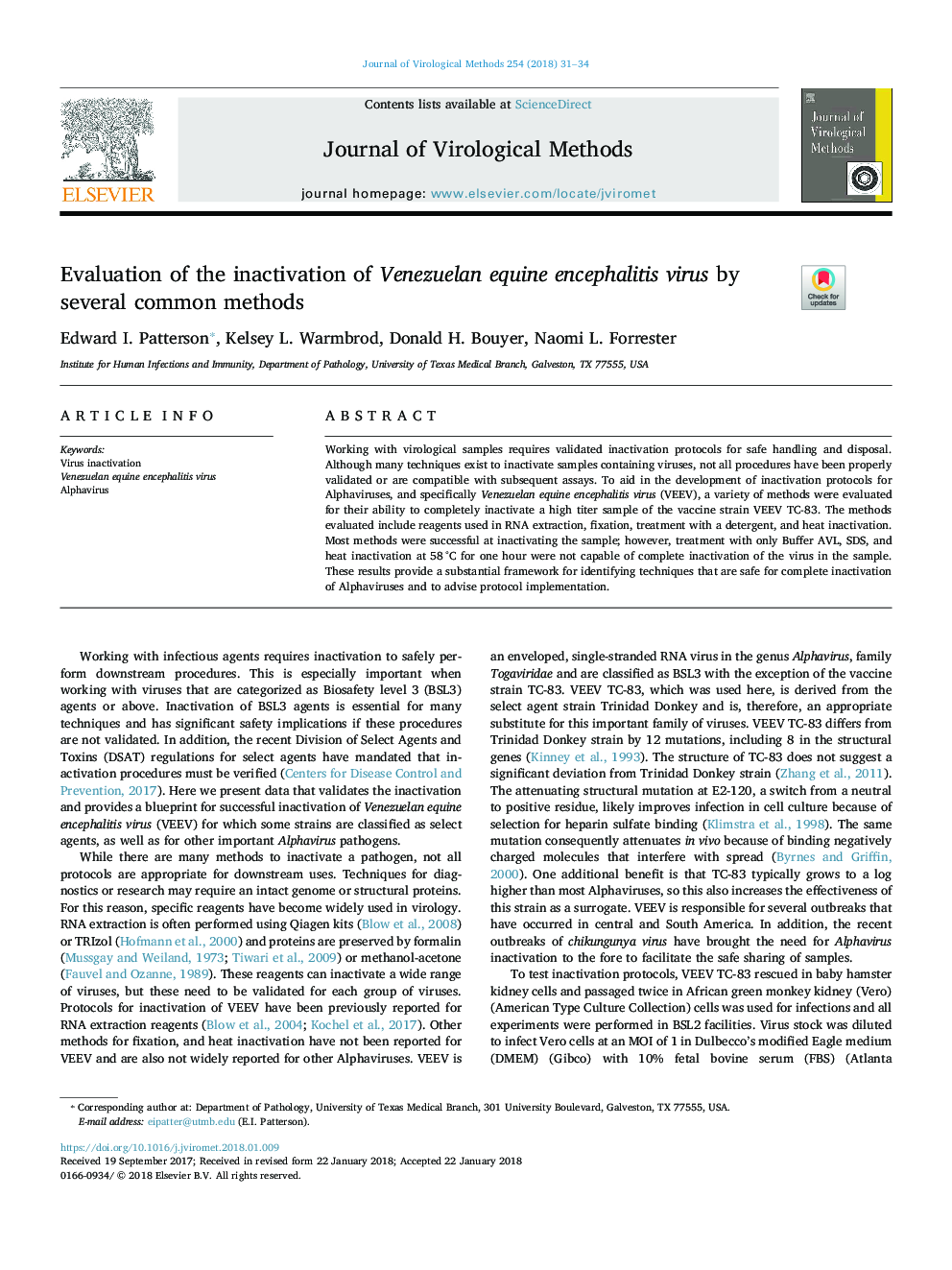| Article ID | Journal | Published Year | Pages | File Type |
|---|---|---|---|---|
| 8747114 | Journal of Virological Methods | 2018 | 4 Pages |
Abstract
Working with virological samples requires validated inactivation protocols for safe handling and disposal. Although many techniques exist to inactivate samples containing viruses, not all procedures have been properly validated or are compatible with subsequent assays. To aid in the development of inactivation protocols for Alphaviruses, and specifically Venezuelan equine encephalitis virus (VEEV), a variety of methods were evaluated for their ability to completely inactivate a high titer sample of the vaccine strain VEEV TC-83. The methods evaluated include reagents used in RNA extraction, fixation, treatment with a detergent, and heat inactivation. Most methods were successful at inactivating the sample; however, treatment with only Buffer AVL, SDS, and heat inactivation at 58â¯Â°C for one hour were not capable of complete inactivation of the virus in the sample. These results provide a substantial framework for identifying techniques that are safe for complete inactivation of Alphaviruses and to advise protocol implementation.
Related Topics
Life Sciences
Immunology and Microbiology
Virology
Authors
Edward I. Patterson, Kelsey L. Warmbrod, Donald H. Bouyer, Naomi L. Forrester,
